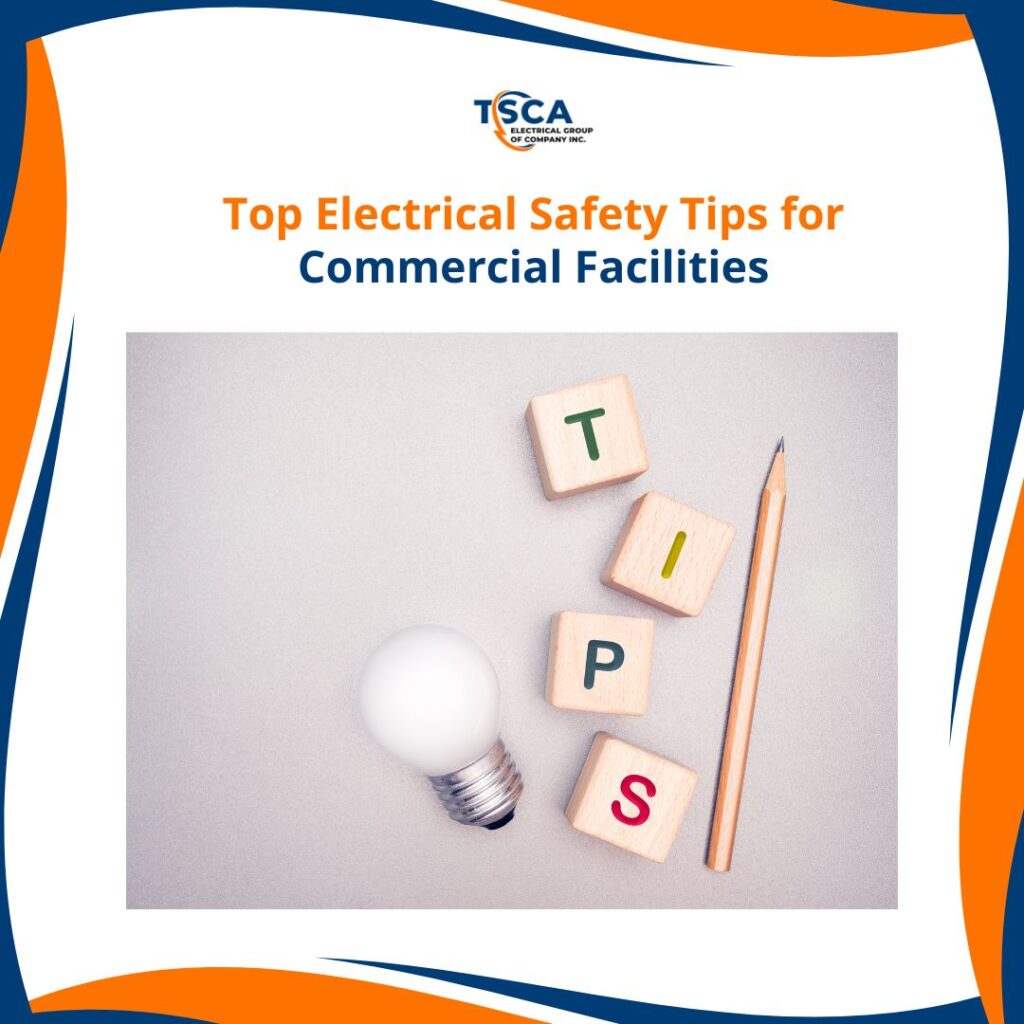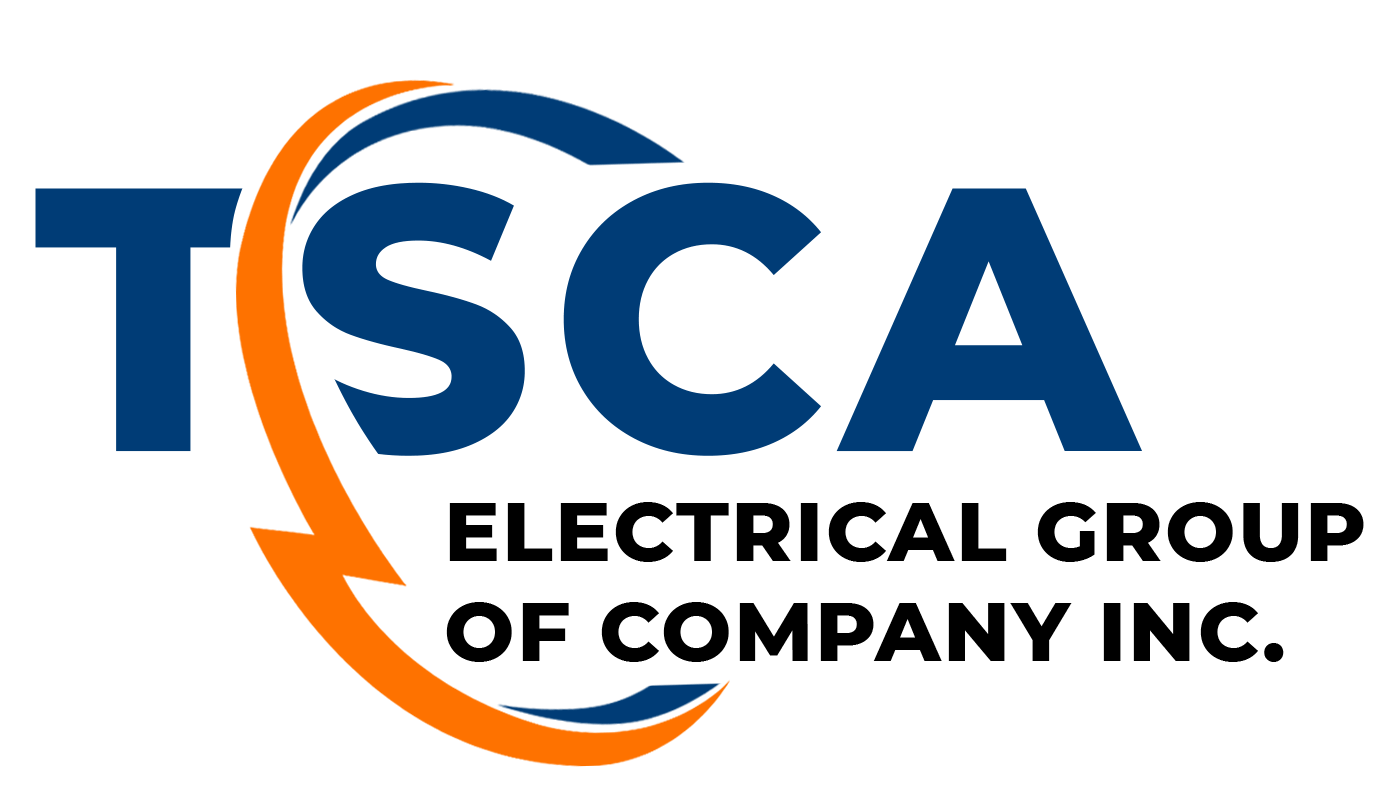
Electrical safety is a critical concern for commercial facilities. Ensuring that electrical systems are functioning properly and safely is vital to protect employees, assets, and the facility itself. This article will provide essential tips to enhance electrical safety in commercial buildings. We’ll cover best practices, preventive measures, and safety guidelines to help you maintain a secure and efficient electrical system.
Understanding the Importance of Electrical Safety in Commercial Facilities
Commercial electrical systems are typically more complex than residential ones due to the higher power demand and the variety of equipment used. An electrical mishap in a commercial facility can lead to severe consequences such as fire hazards, equipment damage, and even injuries. Following proper electrical safety guidelines is crucial to minimize these risks and maintain a safe working environment.
Top Electrical Safety Tips for Commercial Facilities
- Regular Inspections and Maintenance
- Schedule routine inspections of your commercial electrical systems by licensed electricians. They can identify potential issues such as damaged wiring, overloaded circuits, or faulty components.
- Preventive maintenance is key to ensuring the longevity and efficiency of your electrical systems. Make sure that all circuit breakers, transformers, and panels are in optimal condition.
- Install Proper Signage and Labels
- Mark all electrical panels, outlets, and power sources clearly to alert employees and contractors about the presence of electrical equipment.
- Use appropriate warning signs like “High Voltage” or “Do Not Enter” near restricted or high-risk areas to minimize accidents and inform personnel of potential hazards.
- Keep Electrical Panels Accessible
- Ensure that electrical panels are not obstructed by furniture, equipment, or storage materials. Clear access to these panels allows for quick shut-offs in emergencies and prevents accidental tampering or damage.
- Educate Employees on Electrical Safety Guidelines
- Conduct training sessions for employees to educate them about electrical safety protocols. Teach them how to identify potential hazards, use electrical equipment safely, and respond during emergencies.
- Encourage employees to report any electrical issues, such as flickering lights, unusual noises, or exposed wires, to the maintenance team promptly.
- Use Quality Equipment and Up-to-Code Installations
- Ensure that all electrical installations meet local building codes and regulations. Adhering to these standards reduces the risk of faults and enhances overall safety.
- Invest in high-quality electrical equipment, such as industrial-grade plugs, sockets, and circuit breakers, which are designed to handle commercial power loads effectively.
- Avoid Overloading Circuits
- Overloaded circuits are a common cause of electrical fires. Avoid plugging too many devices into a single outlet or power strip.
- Distribute electrical loads evenly across multiple circuits and ensure the power demand of your equipment matches the capacity of your electrical system.
- Install Ground Fault Circuit Interrupters (GFCIs)
- GFCIs are essential in areas where water is present, such as kitchens, bathrooms, or outdoor spaces. These devices can detect imbalances in the electrical current and automatically shut off power, preventing electrical shocks and fires.
- Regularly test GFCIs to ensure they function correctly and replace any faulty units immediately.
- Maintain Proper Lighting for Electrical Areas
- Electrical rooms, panels, and work areas should be well-lit to ensure that maintenance and emergency personnel can access equipment safely.
- Install emergency lighting systems that activate during power outages, providing visibility for safe evacuation and access to essential equipment.
- Implement Lockout/Tagout Procedures
- Develop and implement a lockout/tagout (LOTO) program for electrical maintenance tasks. LOTO procedures ensure that electrical equipment is safely disconnected and locked out while maintenance or repair work is being performed.
- Train personnel on LOTO protocols and provide the necessary equipment, such as locks and tags, to effectively secure electrical systems during maintenance.
- Monitor Electrical Systems with Smart Technology
- Invest in smart technology solutions that monitor the performance of your electrical systems in real time. These systems can alert you to irregularities, such as voltage fluctuations or overheating components, before they escalate into severe problems.
- Smart monitoring systems also allow for remote access, providing facilities managers with immediate updates and control over the building’s electrical systems.
Conclusion
Ensuring electrical safety in commercial facilities is essential for the well-being of employees and the protection of valuable assets. By implementing these safety tips and maintaining a proactive approach to electrical system management, commercial facility managers can minimize risks and maintain a secure environment. Remember, investing in proper training, quality equipment, and routine maintenance is crucial for achieving a safe and efficient commercial electrical system.
By following these guidelines, you can make your commercial facility safer and reduce the likelihood of electrical hazards. Stay vigilant, and prioritize electrical safety to keep your operations running smoothly.




